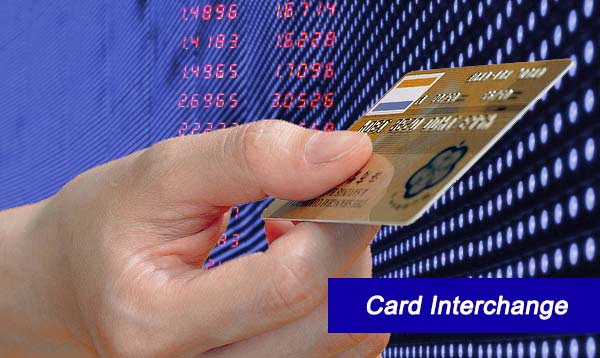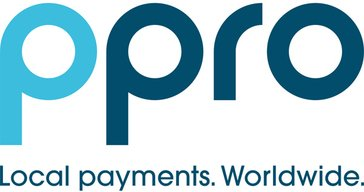Card Interchange
Card Interchange Table of Contents
- Card Interchange
- What Is Card Interchange?
- So Why Are Card Companies Being So Helpful?
- How Is The Fee For Card Interchange Determined?
- What Are Interchange Fees And How Are They Calculated?
- How Are Interchange Fees Charged To Businesses?
- Transactional Factors Affecting Interchange
- Interchange Fees Are A Part Of Doing Business
- Overview of Card Interchange
- Best Payment gateway Solution by Rating
- Best Payment gateway Solution by Price
- Best Payment gateway Solution by Rated Features
- Check Your Payment gateway Solution Offers Round The Clock Support
- Make Sure Your Payment gateway Solution Offers The Features You Need
- Best Payment gateway Software Solution Verdict
- Payment gateway Software Frequently Asked Questions
- What is the best Payment gateway Solution?
- What is the cheapest Payment gateway Solution?
- Is there a free Payment gateway Solution?
- View all of the top Payment gateway Software Solutions
- Payment gateway Alternatives
- Payment gateway VS Side by Side Comparisons

Card Interchange
What Is Card Interchange?
Card interchange is simply a way for one retailer to give you cash back or a discount for using their credit card at their store. It's not an official policy, but most of the major card companies are using this type of payment scheme. The most popular card that is regularly used is the MasterCard but it doesn't stop there.
There are many other smaller companies as well that have started offering this service. You can now buy gas and groceries with a few simple swipes on your debit or credit card. You can also use it in many other locations including movie theaters, airlines, and many other retail outlets. This is just part of why credit and debit cards have become so popular over the years. You can use them just about anywhere you can think of.
So Why Are Card Companies Being So Helpful?
One reason is that they don't want to lose out on any money. Card companies get paid on a regular basis for the amount of money they lend out and on the interest that is paid on those cards. They would obviously prefer that you use their cards and earn some extra money instead of just taking money out of their pocket.
How Is The Fee For Card Interchange Determined?
To better understand how the fee for debit and credit card transactions are calculated, you first need to know what the interchange fee is. The fee is a fee that is applied at the time of the sale or the transaction. This fee is an amount of money that is paid by the seller to the credit card company or to the debit card company, depending on which the transaction is. If a person swipes their debit card at the register and purchases something with their credit card, then they will have to pay the fee that was charged to their account.
On the other hand, when someone swipes their credit card at the point of purchase and pays with a debit card, then the credit card company will charge the appropriate amount of the fee to their account. It stands to reason that the more money that is charged to a person's account, the higher the percentage rate of that charge will be. In most cases, the higher the percentage rate, the less likely it is that someone will pay any money at all to use a certain card.
How is the fee for debit and credit card transactions determined? By using the formula A - B - C, where A is the cost of the credit or debit card transaction and B is the interchange fee, it can be easy to see just how this fee is determined. The formula is a good one to follow because it is relatively easy to understand and to figure out. In fact, most people do quite well in business when they keep this rule in mind.
What Are Interchange Fees And How Are They Calculated?
Interchange fees are the fee that is charged to a student for each course that they take across a credit card from one financial institution to another. The fee varies, depending on the financial institution and the type of credit card used. If you are a college student or have a student card, you should know about the different types of fees that are charged, because knowing this information can help you make decisions on which card to hold, when to hold it, and how much to charge. Most banks, credit unions and student credit card companies will provide you with an online calculator that can help you calculate these fees.
Interchange fees may also be called interchange rate, interchange fee or bank fee. They are often called such because a portion of the initial credit card or debit card fee is charged to the financial institution where the card was issued. This is where the fees are figured into the total amount of the bill. The exact calculation of the fees varies by company, as well as by the credit card or debit card provider.
What are interchange fees and how are they calculated? Students who use their credit or debit cards to pay for school tuition, books, supplies and many other expenses may have to think about the different types of fees. Some of these fees can be eliminated if they will be using a mail in rebates. Others may not be able to be eliminated. There is one major advantage that students should remember: if the money that is saved through the elimination of these fees is going to cover the entire expense, the student has saved money. All types of expenses can be reduced if you understand how they are calculated and the way they are figured in.
How Are Interchange Fees Charged To Businesses?
There are many fees that are charged to business owners when they use a public telephone system, and one of the most expensive is call charges. These fees are usually assessed per minute, per transaction, or per second. Some call providers have negotiated discounted rates with local phone companies to waive or discount some of the higher call outlay fees. So while there may not be a direct relationship between how much you are charged for using a VOIP phone system and how much you are charged for local phone service, there are certainly other things to consider that could affect these two rates.
For businesses that do a lot of local phone calls, it would probably be best to find a VOIP provider who offers a reasonable rate to accommodate this need. Also, it is important to keep in mind that some companies charge a surcharge on top of this higher rate. Many people don't realize this fact, but these fees are implemented for revenue purposes and not necessarily to create a more competitive market. For instance, if a business does ten thousand calls every month, they can elect to pay three dollars extra per call to offset the additional cost. However, if the same business does forty calls in a month, they could be subject to a surcharge of five dollars.
Many companies who charge for these surcharges are legitimate businesses who have chosen to operate outside of the traditional telephone network. For example, there are companies that allow their clients to place an unlimited number of virtual calls using a credit card, or a company that allows its clients to make unlimited local calls using a cell phone. Many businesses prefer to work with these types of services because they allow their clients to run their businesses more efficiently by eliminating the need for a landline or mobile phone line. The service provider will pay the bill at the end of each billing cycle based on the volume of calls made.
Transactional Factors Affecting Interchange
What causes an area to have higher or lower interchange fees? There are many complex variables involved, but one factor that affects all businesses is the number of traffic lanes in the area. If there are more cars on the road, then more people will need to use those lanes to get from Point A to Point B. Because of the number of lanes, and the speed at which cars traveling at the speed limit traveling, traffic congestion causes traffic to slow down, which affects the demand for lanes and the rate of speed that drivers pay.
One of the Transactional factors affecting our cost of living is the 'time value of money' and the 'moving money factor'. The 'time value of money' means that if one dollar is spent now it will earn two dollars later, this is called 'Grossetime Value'. On the other hand, the 'moving money' or 'time value of money' means that if a dollar is spent today that may earn one to two cents in the future, but more likely it will earn nothing. The larger the number of times the money is spent, the more likely it is to earn a profit and the less it costs the Transactional factors affecting our cost of living.Interchange Fees Are A Part Of Doing Business
Credit card companies charge Interchange fees are a necessary part of doing business. Interchange fees, also known as interchange cost, is the price paid to the credit card company for making a sale and then replacing it with another card, usually a lower rate. The interchange fee is a fixed amount, based on card brands and credit card transaction volume, that the credit card company charges to the credit card holder for making a sale. The interchange fee is charged for each transaction, whether made by you or the credit card company, regardless of whether you've made a sale or not. interchange fee is intended to ensure fair and equitable competition among credit card brands, which is why credit card companies are generally organized according to the card brands they provide credit card transactions to.
The interchange fee is meant to make credit cards available at fair prices, not as a means of making profit. interchange fees and interchange rates vary depending on what you're purchasing or paying for, but there are no exceptions. The flat rate interchange fee is designed to be the most affordable and convenient way to pay for your purchases. When you apply for a credit card, the company will check your financial history to determine your payment history and how much you're able to borrow. Credit cards offer many benefits to their users, including perks like free merchandise or reward programs and frequent flyer miles.
Because the credit card companies have to pay the bank, which imposes Interchange fees, it's in their best interest to keep their costs as low as possible. They do this by charging consumers a low flat rate, which is often higher than the lowest cost of cash or check. The reason they have to charge these high fees is because the profit of the credit card company comes from the interest you pay on your balance, not from the sale you make. Interchange fees are the way the credit card companies make their money, so it stands to reason that they'll try to keep their costs as minimal as possible.
Scroll down to read our indepth Payment Platforms guide. What you should know, Payment Platforms features, price plans and support. Pros and Cons of Payment Platforms as a payment gateway, everything is explained below.
Overview of Card Interchange
Spreedly is a software company that specialises in payment-gateway software for small to enterprise level businesses.
Spreedly is listed as the best payment-gateway software related to Payment Platforms. Spreedly was founded in 2008 in Durham, NC and currently has over 79 employees registered on Linkedin.
Best PAYMENT GATEWAY Solution By Rating
Get our stories delivered
From us to your inbox weekly.
 Spreedly
Spreedly
 Simpl
Simpl
 allpago
allpago
 EBizCharge
EBizCharge
 Bolt
Bolt
 PayLane
PayLane
 Paytm Business
Paytm Business
 Apple Pay
Apple Pay
 Paystack
Paystack
 SquareUp Payment Method
SquareUp Payment Method
 Ingenico ePayments
Ingenico ePayments
 PayMart
PayMart
 Paymill
Paymill
 Yapstone
Yapstone
 TRUSTLY
TRUSTLY
 Wirize
Wirize
 Zotapay
Zotapay
 Zooz
Zooz
 Zipmark
Zipmark
 XTRM
XTRM
